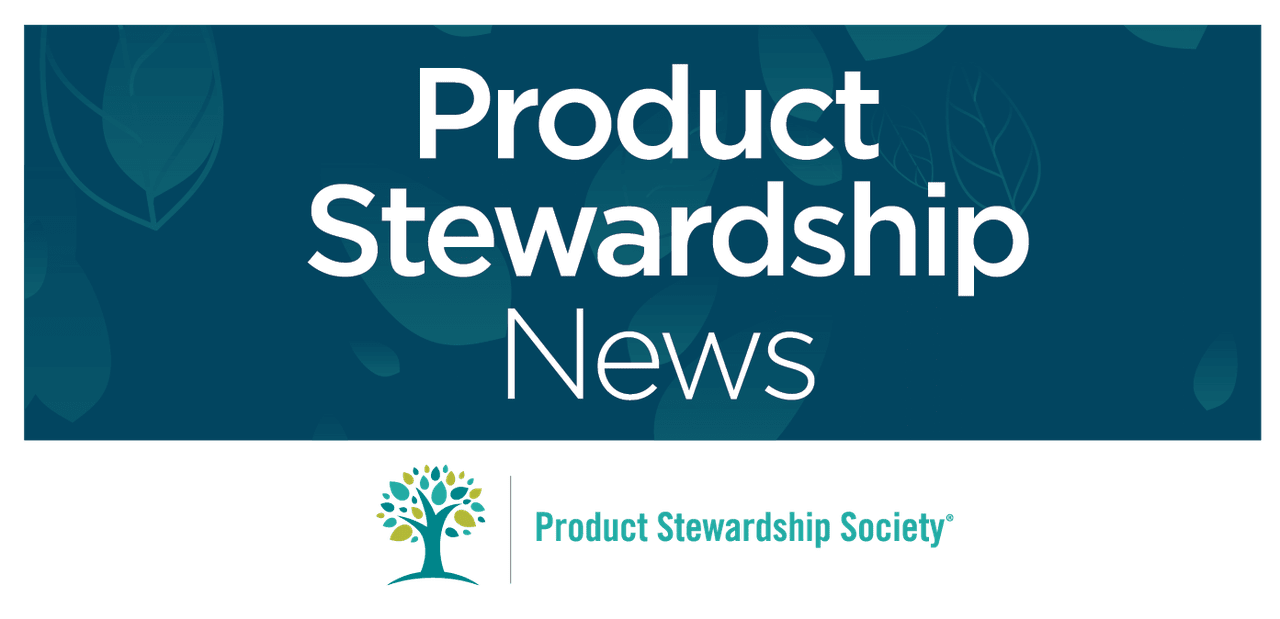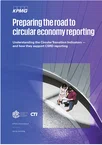

The Synergist welcomes members of the Product Stewardship Society to this special section on product stewardship. Visit the society's website for the latest news and educational opportunities. A preview of PSX 2023 is available on the next page of this issue.
U.K. Delays Implementation of EPR Packaging Fees
New fees intended to ensure companies in the United Kingdom pay the cost of recycling their product packaging have been delayed a year, until October 2025. The fees are part of extended producer responsibility (EPR) regulations that also require companies to report packaging data to the government. The data reporting requirement has not been delayed and will go into effect on April 1, 2024.
A news release from the U.K. Department for Environment, Food and Rural Affairs attributed the decision on fees to concerns about inflation but restated the government’s commitment to eliminating avoidable waste by 2050 and recycling 65 percent of municipal waste by 2035.
For more information, read the news release on GOV.UK and guidance from the U.K. government.
Report Offers Guidance on Compliance with EU CSRD Reporting Requirements

A new report developed by the accounting firm KPMG and supported by the World Business Council for Sustainable Development presents a framework for collecting information that can be used to meet requirements of the European Union’s Corporate Sustainability Reporting Directive. CSRD, which requires companies to report on their sustainability efforts, goes into effect in 2025 for fiscal year 2024 and will require disclosures from approximately 50,000 companies. Among the information required by CSRD are metrics and policies related to environmental, social, and governance (ESG). The new report explains how businesses can use the WBCSD Circular Transition Indicators to support the transition toward circular operations.
EPA Proposes Ban on PCE
In June, EPA published a proposed rule that would ban most uses of the solvent perchloroethylene, or PCE, which is used in dry cleaning and many industrial settings and as a component of brake cleaners and adhesives available to consumers. All consumer uses of PCE and most commercial uses would be phased out over a two-year period. Anticipating the difficulty that small business may have transitioning to a new chemical, EPA is proposing a ten-year phaseout of PCE in dry cleaning. Uses of PCE for national security purposes, in aviation, and in other critical industries would be exempt. For more information, see the article in NewsWatch in this issue and read the EPA press release.
Minnesota Enacts PFAS Ban

In May, Minnesota became the second state in the U.S. to pass a widespread ban on PFAS in products. The law, which prohibits the sale and distribution of products to which PFAS have been added intentionally, will be implemented in phases beginning Jan. 1, 2025, when it will become illegal to sell or distribute some products with intentionally added PFAS in Minnesota.
The Minnesota law covers 11 categories of products, including carpets, cleaning products, cosmetics, dental floss, and upholstered furniture. By Jan. 1, 2026, manufacturers must provide a list of products with intentionally added PFAS to the Minnesota Pollution Control Agency (MPCA). The full ban will take effect Jan. 1, 2032.
Read more about the law on the MPCA website.
The other state with such a sweeping law on the books is Maine, whose ban passed in 2021 and went into effect this year.
EPA Adopts New Framework for PFAS
EPA’s new framework for addressing per- and poly-fluoroalkyl substances involves qualitative assessment of PFAS to determine whether the substances are likely to be persistent, bio-accumulative, and toxic (PBT) chemicals, according to an agency announcement released June 30. The framework will apply to both new PFAS and new uses of existing PFAS. The announcement characterizes new PFAS as challenging to assess quantitatively since data about the risks they may pose are typically unavailable.
Under the new framework, EPA will distinguish between PBT PFAS that could result in environmental releases or exposure to workers or communities from those that will not. The agency expects to require test data on PBT PFAS that are likely to have low but not negligible potential for release prior to approving their manufacture. Extensive testing is likely to be required of PFAS that will have greater impacts on the environment and communities.
More information is available on the EPA website.

